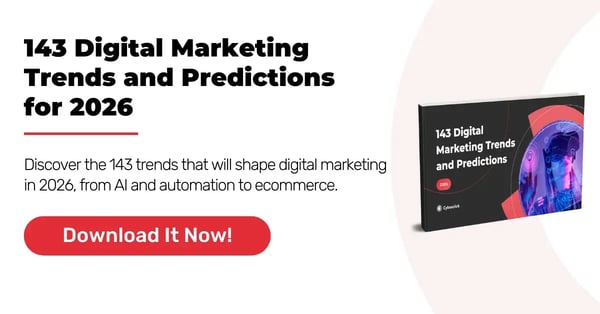Revenue intelligence is a data-driven approach that helps businesses optimize their revenue strategy by integrating insights from sales, marketing, and operations. Instead of relying on gut feelings or scattered reports, it pulls data from multiple sources—like your CRM, sales engagement tools, and marketing platforms—to provide a clear picture of what’s driving revenue and where opportunities might be slipping through the cracks.
At its core, revenue intelligence uses artificial intelligence (AI) and predictive analytics to identify patterns in customer behavior, spot trends, and recommend actions. This means businesses can make smarter decisions, align their teams, and ultimately close more deals.

How Does Revenue Intelligence Work?
Revenue intelligence platforms gather data from different systems within a company, like sales calls, emails, CRM records, and customer interactions. This data is then processed to provide actionable insights, such as:
-
Which leads are most likely to convert?
-
What marketing efforts are generating the highest-quality leads?
-
Where in the sales funnel are deals getting stuck?
-
How are customers engaging post-sale, and are there upsell opportunities?
The AI behind revenue intelligence doesn’t just look at historical data—it continuously learns and adapts, providing teams with real-time recommendations. Instead of manually pulling reports or making educated guesses, teams get automated insights that help them take immediate, impactful action.
Why Does Revenue Intelligence Matter?
In today's fast-paced market, companies that rely on outdated data or manual reporting risk falling behind. Revenue intelligence brings several key benefits:
1. A Unified View of Revenue Data
Instead of each team working independently—sales using one platform, marketing using another, and operations relying on spreadsheets—revenue intelligence centralizes all revenue-related data in one place. This eliminates inconsistencies and let's everyone work with the same, up-to-date information.
2. Better Decision-Making with AI-Powered Insights
Revenue intelligence platforms analyze data patterns to provide real-time insights. For example, they can highlight which sales tactics are working best, suggest follow-ups with high-intent leads, or flag potential risks before they become problems.
3. Stronger Alignment Between Sales and Marketing
One of the biggest challenges in business is making sure that sales and marketing teams are working toward the same goals. Revenue intelligence helps bridge this gap by showing exactly how marketing efforts contribute to revenue and giving sales teams visibility into lead quality and engagement.
4. Increased Sales Efficiency
Reps spend a lot of their time on administrative tasks—logging emails, updating CRM records, or manually tracking deals. Revenue intelligence automates these processes, allowing sales teams to focus on selling rather than data entry.
5. Predictable Revenue Growth
With predictive analytics, businesses can move from reactive decision-making to proactive strategy. Revenue intelligence helps forecast future revenue, identify potential bottlenecks, and adjust tactics in real time to maximize growth.
Choosing the Right Revenue Intelligence Platform
If you're considering investing in a revenue intelligence solution, below are some factors to keep in mind.
1. Data Integration Capabilities
Look for a platform that can pull data from your existing tools, like your CRM, sales engagement software, marketing automation platform, and customer success tools—the more integrations, the better the insights.
2. AI and Predictive Analytics Features
Not all revenue intelligence tools are created equal. Some only provide reporting, while others also offer advanced AI-driven recommendations. Choose a platform that provides predictive insights that can genuinely impact your revenue strategy.
3. Real-Time Reporting and Dashboards
You don’t want to rely on outdated reports. A good revenue intelligence solution should offer real-time dashboards that make it easy for teams to track progress, identify trends, and take action immediately.
4. Automation and Workflow Optimization
The best platforms don’t just analyze data, they also automate tasks. Look for features like auto-logging interactions, AI-driven lead scoring, and automated follow-up suggestions to help your team work smarter, not harder.
5. Scalability and Customization
As your business grows, your needs will evolve. Choose a revenue intelligence tool that can scale with you and allows for customization based on your specific sales and marketing processes.
Implementing Revenue Intelligence in Your Business
Step 1: Define Your Revenue Goals
Firstly, identify what you want to achieve. Are you looking to shorten sales cycles? Improve lead conversion rates? Increase customer retention? Having clear goals will help you choose the right platform and measure success.
Step 2: Centralize Your Data
Make sure that all revenue-related data is integrated into your revenue intelligence platform. This means connecting your CRM, marketing tools, sales engagement platforms, and customer support systems.
Step 3: Align Teams and Processes
Revenue intelligence works best when sales, marketing, and operations are on the same page. Establish clear communication channels and shared KPIs so everyone benefits from the insights provided by the platform.
Step 4: Train Your Team
Adopting a new tool requires a shift in mindset. Be sure your team understands how to use the platform and how it will benefit them in their daily workflows. Offer training sessions and encourage adoption through clear incentives.
Step 5: Monitor, Measure, and Optimize
Revenue intelligence isn’t a one-time implementation, it’s an ongoing process. Regularly review performance metrics, analyze insights, and make data-driven adjustments to improve your revenue strategy over time.
Conclusion
Revenue intelligence is a game-changer for businesses looking to maximize their revenue potential. Centralizing data, providing AI-driven insights, and automating key processes help teams make smarter decisions and drive growth more effectively. If you’re serious about taking your revenue strategy to the next level, investing in the right revenue intelligence platform is a step in the right direction.
Data Scientist en Cyberclick. PhD en Astrofísica por la Universitat de Barcelona con más de diez años de experiencia en investigación mediante el análisis e interpretación de datos. En 2019 redirige su carrera profesional hacia el mundo del Data Science cursando el Postgrado en Data Science y Big Data de la UB, así como participando en el programa Science To Data Science (S2DS) en Londres. Actualmente forma parte del equipo de Data Science y SEM de Cyberclick.
Data Scientist at Cyberclick. PhD in Astrophysics from the University of Barcelona with more than ten years of research experience through data analysis and interpretation. In 2019 he redirected his professional career to the world of Data Science by graduating in Data Science and Big Data from the UB, as well as participating in the Science To Data Science (S2DS) program in London. He is currently part of Cyberclick's Data Science and SEM team.






Leave your comment and join the conversation